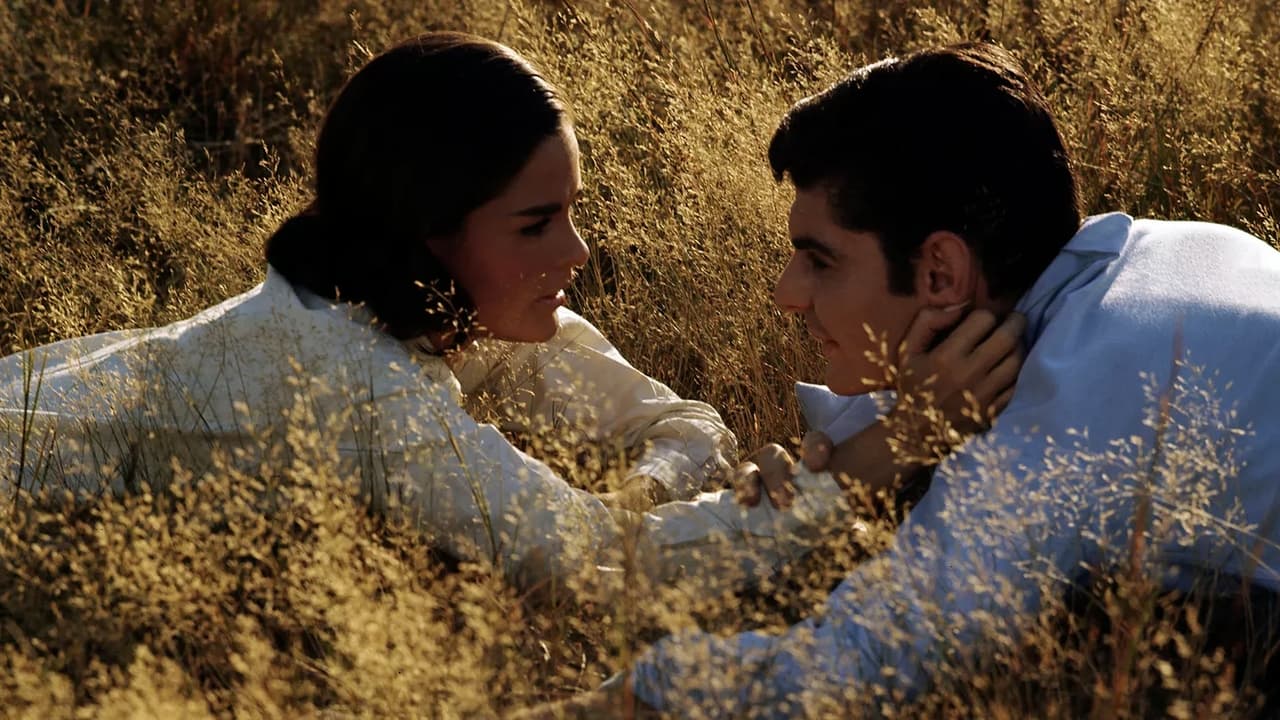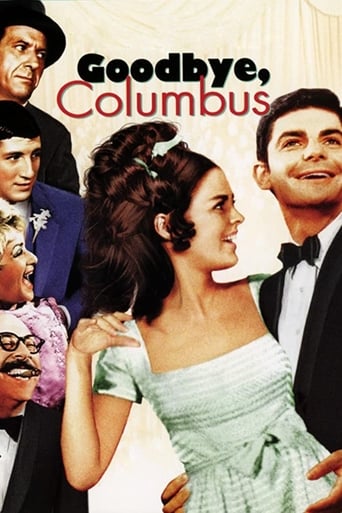



Slow pace in the most part of the movie.
Disturbing yet enthralling
Good films always raise compelling questions, whether the format is fiction or documentary fact.
View MoreAmazing worth wacthing. So good. Biased but well made with many good points.
View MoreThis movie was meaninful to me because the characters represent real people. People who the main character, Neil, rejects (or at least cannot relate to) because of what they represent. For example, the hard-charging businessman played by Jack Klugman, who's portrayed in his plumbing-supply office screaming into the phone, making deals. The brother, played by Michael Myers (not the famous Mike Myers) is the ultimate very-dumb jock. And, of course, Ali McGraw, who's is actually torn between being the good Jewish American Princess and her attraction to Neil. Her father (Klugman) is dumbfounded when he learns that Neil doesn't really mind being a librarian. Finally, Richard Benjamin's Neil, is a kind of existential Jewish outsider who can't relate to the affluence displayed by the Patimkins. One of the more memorable scenes in the movie: Neil discovers a second refrigerator in the Patimkin's basement PACKED with food. Are these people real? They are. And even though the movie is 35 years old we can still relate to these characters. Thank you Phiip Roth.
View MoreAt the dinner table Harriet, Ron's fiancé, is supposed to call at 5 o'clock and Julie, his little sister, is confused and says that it already was 5 o'clock. She is then told that it is 5 o'clock in Columbus and asks if you could travel back and forth and never grow old. Brenda supports this sarcastically, "Oh that's right sweetie" and is than castigated by her mother for giving the younger sibling misinformation. I am assuming that they mean Columbus,Ohio, the location of Ohio State, Ron's school, but this makes no sense since Columbus, Ohio is in the same EST time zone as Purchase, New York where the action is taking place. This appeared to be a goof, but I was at a loss to explain it until I reread the original Philip Roth Novella, which placed Harriet in Milwaukee and in the Central Time Zone. The screenwriter put her in Columbus for some reason, but neglected to realize that Columbus is in the Eastern Time Zone and that this great dialog would have this inaccuracy.
View MoreThe look of the film is very 1969 (the year it came out), but the attitudes are very much 1962. Two Dartmouth students yell with glee when they meet at a party that one is Class of '64 and the other is Class of '66. Brenda, the female lead character, relates how surprised she was when as a little girl her father had shown her 2 $100 bills. She had never seen a $100 bill before.For a modern audience to enjoy this film, you have to look at it as a period piece. After all, the film's tag line is "Every father's daughter is a virgin". You know you are not in 2004. Not all of the biting satire still holds, but the romance does. Both Ali MacGraw and Jack Klugman give very warm, appealing performances.It is amazing how many thing have changed in the last 35 years...and how many thing haven't changed. An interesting film from a time when there were "good girls" and "bad girls" and a bride wearing white meant something.
View MoreOne of the simple pleasures of viewing Woody Allen's films is you don't have to be kosher necessarily to relate to Allen's stock character of the down-trodden goy fraught with a plethora of neurosis-everything from sexual dysfunction to the nagging doubt predicated by existential angst over our natural inclination towards God and the infinite. What cheap shots Allen did throw at religion were strictly for laughs both as parody and commentary. In other words, Catholicism and Judaism suffered slings and arrows in the same measure. At the time ofthe film's release, "Goodbye, Columbus" was criticized for being "too jewish". It's simple tale of nice jewish boy meets spoiled jewish princess meets crass wealthy jewish family (who somehow along the way forgot their humblebeginnings) is met with tribulation and turmoil mostly from shrewish jewishmother inevitably leading to a parting of the ways for nice jewish boy arrived during a period in Hollywood when the youth of America were being heard atpeace marches, flag burnings, love-ins, gay and feminist movements, sexualliberation and draft dodging. From 1967-72, audiences were being treated tofilms of relevant social commentary beginning with "The Graduate" and justabout ending with the release of "Harold and Maude". It's all good as it was all about consciousness-raising. Among them, "Goodbye, Columbus" is a bit of apeon but a film that still remains a stinging comment on class-consciousAmerica in it's whole up-the-rich-screw-the-poor-warts-and-all approach tostory telling. Richard Benjamin is fine as Neil, a man smitten by Ali McGraw (her debut) as Brenda but taken aback by her family and her unremittingdependence on them. The final scene involving Brenda's willingness to commit an unconscionable act of sex sans condom and it's consequences promptingNeil's apathy to face the world wiser but at least no worse for the wear remind us of just how emotionally disconnected most Americans were in the latesixties. We were battered and bruised having come through an unpopular war .Add to that the violent demonstrations we were witnessing at home leaving anation numb if not weary. Perhaps the most evocative scene which says themost about our culture is the wedding reception for Brenda's lunkhead brother in which friends and relatives descend upon the banquet table like a plague of locusts devouring everything in sight. It sets just the right tone for the film: 'I'm so hungry, I'd eat my own kind. And only then with certain reservation.'
View More